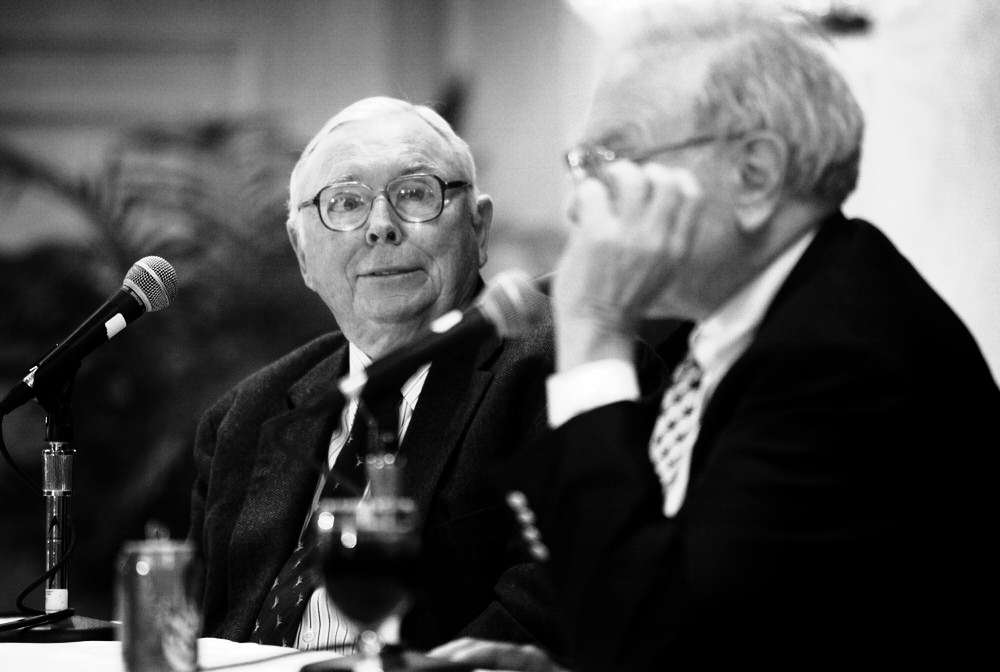by Kristina Hooper, Global Market Strategist, Invesco Ltd., Invesco Canada
It’s the beginning of June, and I haven’t been this happy to welcome a new month in a very long time. I suspect many investors and market watchers have that same feeling. May was brutal for markets — but it was more than just that. The month of May was, in my opinion, a game-changer. So much happened that no one expected to happen:
The US-China trade talks broke down. Almost everyone expected that a trade deal would be reached between the US and China in the month of May; that’s certainly what the rhetoric from both sides suggested. In fact, a trade agreement was priced into markets. And then came the surprise news, and a further deterioration in relations between the two countries over the course of the month.
This is not a minor spat. It seems that the US may have finally pushed China too far, and it’s unclear whether China will even return to the bargaining table under current circumstances. A recent editorial in the Chinese newspaper People’s Daily warned the US that it shouldn’t underestimate China’s ability to fight back in the trade war. The editorial included an ominous quote rarely used in the paper, which can be loosely translated as “don’t say I didn’t warn you.”1 This specific phrase has had particular diplomatic meaning. It was used in 1962 before China went to war with India, and again in 1979 when conflict broke out between China and Vietnam. More recently, a Chinese army general has said of the US, “If they want to fight, we will fight until the end…Bully us? No way.”2 This is obviously very different rhetoric than we heard just a month ago, and suggests the relationship between the US and China has deteriorated beyond just trade.
In terms of retaliation by China, it would likely come in a variety of ways. However, one key weapon in China’s arsenal is a possible embargo of rare earth metals — something I articulated in a CNN Money op-ed piece in early January.4 In a recent piece, the People’s Daily suggested China is considering the use of a rare earth metals embargo as retaliation in the trade war, and the editor-in-chief of another Chinese newspaper, Global Times, tweeted that China is “seriously” considering restricting rare earth exports to the US and may also utilize other tools in its dispute with the US.3
UK Prime Minister Theresa May resigned. The prime minister is a notoriously stubborn, resilient woman who has the distinction of being the longest-serving Home Secretary in the history of the job, which spans hundreds of years. May had resisted efforts to convince her to resign for some time. However, her most recent attempt at a Brexit deal, which included the possibility of a second referendum, caused a revolt in her own party. Her resignation opens up a Pandora’s box of uncertainty about what will happen in the UK between now and Oct. 31.
North Korea fired short-range missiles. For the first time since late 2017, North Korean missile tests occurred in early May. On May 25, just before Trump’s recent visit to Japan, National Security Advisor John Bolton stated that the tests violated United Nations resolutions. The country is clearly provoking the US; North Korea seems interested in testing alliances between countries such as the US and Japan, given that short-range missiles pose a very significant threat to Japan, and Japan made that clear during Trump’s recent visit. At the Shangri-La Dialogue (an annual security conference) last week, US Acting Secretary of Defense Patrick Shanahan said that North Korea “remains an extraordinary threat” and is nearing “a point where it could credibly strike regional allies, US territory, and our forward-deployed forces.”5
The US vowed to impose a tariff on goods imported from Mexico. The tariffs are scheduled to begin June 10. They are to start at a level of 5% and rise over the coming months up to 25% in October unless or until Mexico improves the enforcement of immigration policies. Some Republican legislators have suggested that the president’s vow is an idle threat and they did not believe he would implement such a measure. However, Acting Chief of Staff Mick Mulvaney said over the weekend that this is not an idle threat and that he was very confident that these tariffs would go into effect. In my view, this is a dramatic and frightening decision that expands the use of tariffs beyond trade policy. I have been clear in my view that tariffs are a terrible tool to use in a trade war. Tariffs are a far more horrible tool to use to achieve policy goals unrelated to trade. It suggests that “all bets are off” in terms of what the administration will use tariffs for, leaving companies with an enormous amount of trade policy uncertainty going forward.
More than just seeing the unexpected happen, I believe there may be no turning back in terms of these developments.
What to watch in June and beyond
US-China relations. I believe this relationship is deteriorating beyond just trade, and will not be easily repaired in the near term. Shanahan’s comments at the June 1 Shangri-La Dialogue appeared to criticize China for its behavior in the South China Sea and are likely to provoke China even further. It may not be a coincidence that North Korea is flexing its muscles with the US, given that many believe China had been a driving force behind North Korea’s ceasefire when its relationship with the US was better.
Brexit drama. The situation in the UK has become far more unpredictable in the wake of May’s resignation. The Conservative party is likely to choose a hard line Brexiteer such as Boris Johnson in late July as the next prime minister, but opposition to this outcome appears to be growing. Finance Minister Philip Hammond said Parliament would be “vehemently opposed” to a no-deal strategy and a prime minister who ignored Parliament “cannot expect to survive very long … I will urge all of my colleagues who are standing in this contest to embrace the concept of compromise…going to parliament with a hard line absolutist view and daring parliament to accept it is quite a dangerous strategy.”6 Over the weekend, Labour Party leader Jeremy Corbyn called for a general election or referendum. There are likely to be more twists and turns in this British telenovela in coming weeks.
Geopolitical risk in the US. Geopolitical risk has begun to be priced into US markets, and that is likely to continue, in my view. (Up until recently, I would argue that very little risk had been priced in — which was far different than what we have seen in European markets.) Greater geopolitical risk faces the US on several fronts beyond just tariff wars:
- As the Democratic primary race heats up, more exposure is being given to more left-wing contenders for the nomination and their rhetoric. This is already causing concern among business leaders who worry about a far less business-friendly climate come 2021 on top of economic policy uncertainty – and that is likely to increase as primary season rolls on.
- The press conference given by Special Counsel Robert Mueller last week raises the specter of a possible impeachment proceeding, which could mean more geopolitical risk gets priced into stocks, and more economic policy uncertainty.
Tariff overload. Many tariffs have been levied over the course of the past year, with more expected to come. Tariffs and the threat of tariffs are having some negative impact on global growth, which was already slowing down modestly. On June 3, the J.P.Morgan Global Manufacturing PMI (Purchasing Managers’ Index) for May was released: It clocked in at 49.8 versus 50.3 in April, indicating that manufacturing is now in contraction territory globally.7 This, by the way, is the worst reading since October 2012.7
I would remind readers that, in 2018, I said repeatedly that the scariest words I heard uttered that year were actually contained in a presidential tweet: “… trade wars are good and easy to win.”8 For 2019, the scariest words I have heard — at least thus far — are even scarier, and are also contained in a presidential tweet: “…the word TARIFF is a beautiful word indeed!”9
However, I suspect the push to use tariffs as a non-trade policy tool will likely have consequences; the Trump administration may have gone too far last week regarding its planned use of tariffs to enforce immigration policy in Mexico. Republican Senator Chuck Grassley stated bluntly: “This is a misuse of presidential tariff authority and counter to congressional intent.”10 I wouldn’t be surprised to see Congress attempt to claw back tariff powers from the White House after nearly a hundred years of giving its tariff powers away to the executive branch.
Conclusion
Markets continue to be nervous and are suggesting a high level of fear, as indicated by the 10-year US Treasury yield having briefly fallen below 2.10% on June 3.11 Having said that, investors with diversified portfolios and longer-term time horizons should not be panicked by the current situation.
At this juncture, I still believe a recession is unlikely, given the ability of the Federal Reserve to respond to the current situation – as well as China’s commitment to continue to stimulate its economy fiscally and monetarily. I expect stocks will be volatile but will still outperform in this low-rate, benign inflation environment. In this environment, sell-offs can represent attractive buying opportunities for disciplined investors.
This post was originally published at Invesco Canada Blog
Copyright © Invesco Canada Blog














